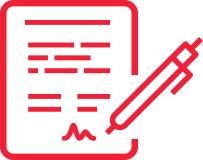Menu
Top Copyright Law Developments of 2024, and What to Expect in 2025
January 15th, 2025

In case you missed it, here are some of the top copyright law cases and legal developments we wrote about in 2024:
American Girl, LLC v. Zembrka.
The Circuit Court found that the defendant Chinese company transacted business in New York State by making sales to New York customers through its websites, giving New York courts personal jurisdiction over the Chinese company under New York’s long-arm statute.
Digital Replicas
Both the US Congress and the US Copyright Office have been thinking about how laws should be adjusted to deal with artificial intelligence (AI).
The US Copyright Office issued a report recommending the creation of a new federal law that would create a kind of property right in a person’s digital replica, including their face and voice.
Generative Artificial Intelligence
There have been several recent developments in the intellectual property law disputes over the use of generative artificial intelligence (GAI or GenAI).
On April 30, 2024, eight major US newspapers, including the New York Daily News and Chicago Tribune, filed suit in federal court in the Southern District of New York, accusing OpenAI and Microsoft of copyright infringement for using their copyright-protected articles to train the GAI tool called ChatGPT.
At the end of December 2023, the New York Times sued OpenAI and Microsoft for copyright infringement, claiming that their generative AI (GAI or GenAI) tools were trained on articles published by the Times without its authorization.
There have been similar previous cases filed by others, including writer and performer Sarah Silverman, but the Times case was the first by a major US media organization.
According to the Times’ 69-page complaint in the lawsuit, GAI is an existential threat to independent journalism.
Patent Office issues guidelines for AI-assisted inventions
The US Patent and Trademark Office (USPTO) issued guidance and examples for inventions assisted by artificial intelligence (AI). It went into effect on February 13, 2024.
This guidance is related to the USPTO’s obligations under the Executive Order on the Safe, Secure, and Trustworthy Development and Use of Artificial Intelligence.
Reddit and Google Enter into AI Content Licensing Agreement
Reuters reported that Reddit has entered into an agreement with Google to make content posted by Reddit users available to train Google’s artificial intelligence (AI) models.
According to a source, this licensing deal is worth about $60 million per year.
Nintendo Reached $2.4 Million Settlement with Emulator Company
Nintendo reached a settlement with the maker of a Switch game emulator that will result in a payout of $2.4 million to Nintendo and the defendant company shutting down.
As Ars Technica reported, Nintendo is "basically taking the position that emulation itself is unlawful." Thus,
If successful, the arguments in the case could help overturn years of legal precedent that have protected emulator software itself, even as using those emulators for software piracy has remained illegal.
Mickey Mouse Entered the Public Domain
January 1 every year is celebrated by some as “public domain day.” Works first published in 1928 (and sound recordings from 1923) entered the public domain on January 1, 2024.
Works published earlier were already in the public domain.
As the US Copyright Office explains,
The term of copyright for a particular work depends on several factors, including whether it has been published and, if so, the date of first publication. As a general rule, for works created after January 1, 1978, copyright protection lasts for the life of the author plus an additional 70 years. For an anonymous work, a pseudonymous work, or a work made for hire, the copyright endures for a term of 95 years from the year of its first publication or a term of 120 years from the year of its creation, whichever expires first. For works first published prior to 1978, the term will vary depending on several factors.
In 2025, works entering the public domain include:
- "A Farewell to Arms," by Ernest Hemingway
- "The Sound and the Fury," by William Faulkner
- The character of Popeye
- The character of Tintin
- The song "Singin' in the Rain"
- "An American in Paris," by George Gershwin
Here are some other copyright matters of interest from 2024:
Sedlik v. Von Drachenberg
A jury found that tattoo artist Katherine Von Drachenberg didn’t infringe a copyrighted portrait of Miles Davis taken by photographer Jeffrey B. Sedlik when she referenced it for a tattoo, finding this fell within fair use.
The 8th Circuit found that the use of an internet meme to seek campaign donations was a commercial use of copyrighted material and thus not allowed under the fair use doctrine.
Coming Soon
Cases involving GAI and fair use will continue to work their way through the courts, and there may be significant decisions this year.
Gifford v. Sheil
One influencer sued another for allegedly copying her signature “vibe” or style, including in photos. The case may turn on whether there is enough “authorship” in the images to be protectable under copyright law.
Whyte Monkee Prods. LLC v. Netflix, Inc.
The plaintiff sued Netflix for including its copyrighted video clip in the hit Tiger King documentary series on animal handler “Joe Exotic.” The district court granted summary judgment for Netflix, then the Tenth Circuit reversed and remanded for more fact-finding on the alleged market harm to the plaintiff. The circuit court also questioned whether Netflix’s use was “transformative” enough to be considered fair use under the Supreme Court’s 2023 Warhol decision.
Trump Administration
According to Forbes, the incoming second Trump administration
could reshape music copyright and licensing. With a focus on deregulation, Trump’s approach may favor tech innovation over traditional protections, creating both risks and opportunities for the music industry.
For example, says Forbes,
One of the most immediate potential shifts under Trump’s administration is the dismantling of the AI Bill, a move Trump has suggested taking immediately upon returning to office. This Bill currently includes licensing measures that protect copyrighted content used in data training. The repeal of this framework could ease licensing requirements for AI developers, allowing them to train models on music data without compensating artists.
Categories: Copyright








